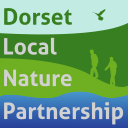Coppicing & Conservation
Pete Etheridge, Greenwood Ecology & Countryside Management and Dorset Coppice Group Coppicing has been practised in the UK for hundreds (if not thousands) of years. In 1905 (decades after the peak in coppicing activity), it was estimated that there was somewhere in the region of 230,000 ha of actively managed coppiced woodland within the UK …

